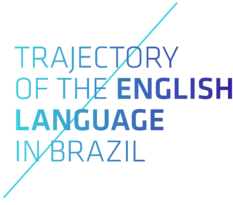Machado de Assis
Son of a black man and a Portuguese woman, Machado was never able to attend university. Even so, he learned English, French and German as a child in order to have access to the great classics of world literature.
One of Machado’s inspirations was the work of Edgar Allan Poe, an American poet and short story writer. The English language was the contact between the two. The similarities in their works are diverse: both represented characters in moments of crisis, with a style marked by criticism of the authorities.
Machado de Assis admired Poe, and in 1883 published the first translation into Portuguese of the poem “O Corvo”, one of his masterpieces. He also helped to disseminate it in newspapers and periodicals of the time. In addition to literary criticism and recommendations, he wrote articles for newspapers and was a member of the Petalogical Society, one of the first independent groups to combat fake news (the current fake news).
His work contained sarcasm and humour, making for a unique style. Subtly controversial, he made surgical criticisms of the elite of the time. For this reason, he is considered one of the fathers of Brazilian realism. His talent and intelligence brought him prestige and he conquered space in the Brazilian Empire. He exerted an influence compatible with his writing style in the fight against slavery in Brazil.
In 1869 he married Carolina Augusta Xavier de Novais, the great love of his life. He lived a happy marriage with her on Rua do Cosme Velho, in Rio de Janeiro. He died in 1908, four years after his wife, in the same house they lived in. Living up to the affectionate nickname suggested later in a poem by Carlos Drummond de Andrade, the “Warlock of Cosme Velho” rests in peace.
One of his greatest legacies was the Brazilian Academy of letters, which he founded in 1897 alongside writers Lúcio de Mendonça, Inglês de Sousa, Olavo Bilac, Afonso Celso, Graça Aranha, Medeiros e Albuquerque, Joaquim Nabuco, Teixeira de Melo, Visconde de Taunay and Ruy Barbosa. Machado presided over the Academy for ten years. He was also a playwright, historian and literary critic and contributed to the Brazilian cultural legacy inside and outside the country.
References:
CALDAS, Helen Cristina Xavier. Machado de Assis na sala de aula: Contos. Curso de Especialização em Língua Portuguesa: Teorias e Práticas de Ensino de Leitura e Produção de Textos, Universidade Federal de Minas Gerais – UFMG, 2021.
LÔBO, Yolanda. Bertha Lutz. Recife: Fundação Joaquim Nabuco, Editora Massangana, 2010. 148 p.: il. (Coleção Educadores). Acesso em dezembro de 2022.
PEREIRA DE MELO, H.; LÍGIA, M. C. S. RODRIGUES.. Pioneiras da Ciência no Brasil. Disponível em: <http://www.sbpcnet.org.br/site/publicacoes/outras-publicacoes/livro_pioneiras.pdf>.
PHILIPPOV, Renata. Edgar Allan Poe e Machado de Assis: intertextualidade e identidade. Itinerários, Araraquara, n. 33, p. 39-47, jul./dez. 2011.

